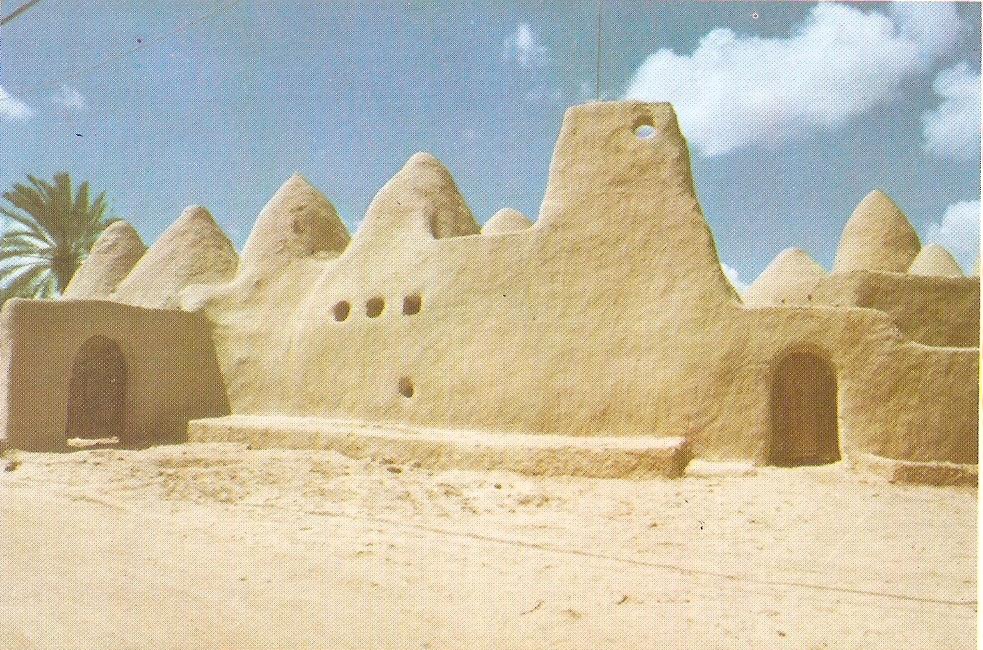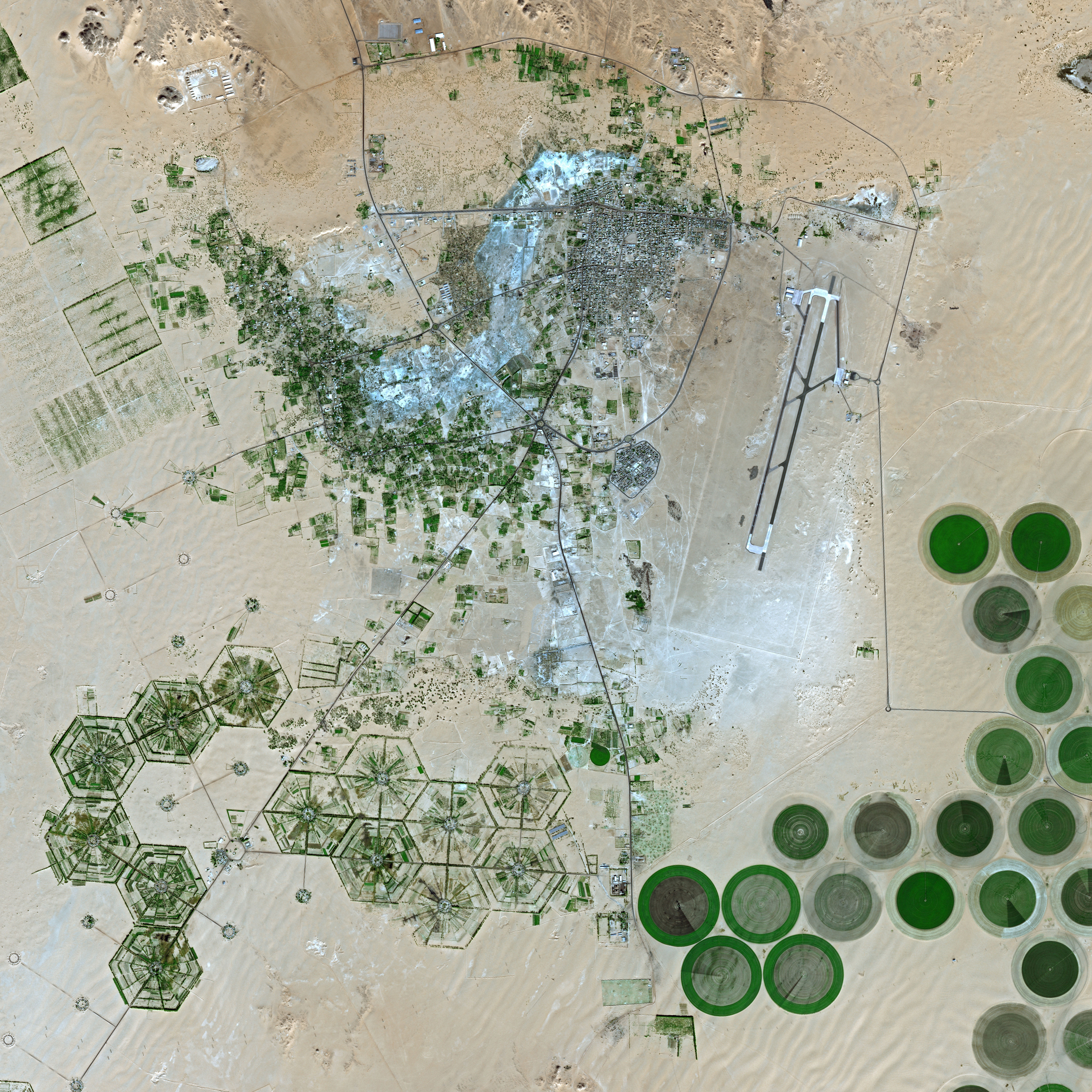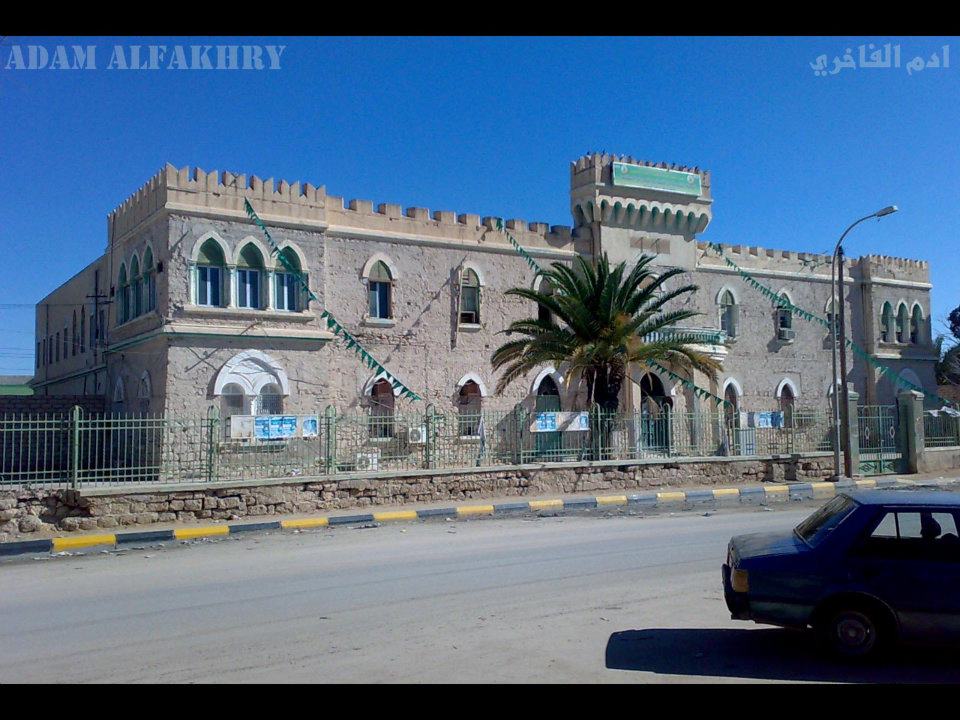|
Modus Vivendi Of Acroma
The ''modus vivendi'' of Acroma was a pair of agreements signed by the Sanūsī Order with Britain and Italy on 16 April 1917 at Acroma (ʿAkrama). E. E. Evans-Pritchard (1945), "The Sanusi of Cyrenaica", ''Africa'' 15(2): 61–79, esp. at 69. The negotiations that led to the '' modus vivendi'' were begun by Idrīs al-Sanūsī soon after he succeeded his uncle at the head of the order in 1917. His cousin, Aḥmad al-Sharīf al-Sanūsī, had instigated an unsuccessful war with Britain with Ottoman and German assistance at the height of the First World War. Idrīs wished to enter into negotiations with Britain, but the British refused to negotiate unless their wartime ally, Italy, was included in the talks. Peace with Italy was more than al-Sharīf could bear and he left Libya for the Ottoman Empire when negotiations were opened. The Italian and British delegations arrived in Tobruk in late January 1917, while Idrīs stayed in Acroma. Sanūsī and British messengers conveyed ... [...More Info...] [...Related Items...] OR: [Wikipedia] [Google] [Baidu] |
Senusiyya
The Senusiyya, Senussi or Sanusi ( ar, السنوسية ''as-Sanūssiyya'') are a Muslim political-religious tariqa (Sufi order) and clan in colonial Libya and the Sudan region founded in Mecca in 1837 by the Grand Senussi ( ar, السنوسي الكبير ''as-Sanūssiyy al-Kabīr''), the Algerian Muhammad ibn Ali as-Senussi. Senussi was concerned with what he saw as both the decline of Islamic thought and spirituality and the weakening of Muslim political integrity. The movement promoted strict adherence to Qur'an and Sunna, without partisanship to the traditional legal schools of thought. It also sought a reformation of Sufism, condemning various practices such as seeking help from the dead, sacrificing for them and other rituals which they considered to be superstitions and innovations. From 1902 to 1913, the Senussi fought French colonial expansion in the Sahara and the Kingdom of Italy's colonisation of Libya beginning in 1911. In World War I, they fought the Senussi ... [...More Info...] [...Related Items...] OR: [Wikipedia] [Google] [Baidu] |
Awjila
Awjila ( Berber: ''Awilan'', ''Awjila'', ''Awgila''; ar, أوجلة; Latin: ''Augila'') is an oasis town in the Al Wahat District in the Cyrenaica region of northeastern Libya. Since classical times it has been known as a place where high quality dates are farmed. From the Arab conquest in the 7th century, Islam has played an important role in the community. The oasis is located on the east-west caravan route between Egypt and Tripoli, Libya, and on the north-south route between Benghazi and the Sahel between Lake Chad and Darfur, and in the past was an important trading center. It is the place after which the Awjila language, an Eastern Berber language, is named. The people cultivate small gardens using water from deep wells. Recently, the oil industry has become an increasingly important source of employment. Location Awjila and the adjoining oasis of Jalu are isolated, the only towns on the desert highway between Ajdabiya, to the northwest, and Kufra, to the sou ... [...More Info...] [...Related Items...] OR: [Wikipedia] [Google] [Baidu] |
Treaties Of The Kingdom Of Italy (1861–1946)
A treaty is a formal, legally binding written agreement between actors in international law. It is usually made by and between sovereign states, but can include international organizations, individuals, business entities, and other legal persons. A treaty may also be known as an international agreement, protocol, covenant, convention, pact, or exchange of letters, among other terms. However, only documents that are legally binding on the parties are considered treaties under international law. Treaties vary on the basis of obligations (the extent to which states are bound to the rules), precision (the extent to which the rules are unambiguous), and delegation (the extent to which third parties have authority to interpret, apply and make rules). Treaties are among the earliest manifestations of international relations, with the first known example being a border agreement between the Sumerian city-states of Lagash and Umma around 3100 BC. International agreements were used in s ... [...More Info...] [...Related Items...] OR: [Wikipedia] [Google] [Baidu] |
World War I Treaties
In its most general sense, the term "world" refers to the totality of entities, to the whole of reality or to everything that is. The nature of the world has been conceptualized differently in different fields. Some conceptions see the world as unique while others talk of a "plurality of worlds". Some treat the world as one simple object while others analyze the world as a complex made up of many parts. In ''scientific cosmology'' the world or universe is commonly defined as " e totality of all space and time; all that is, has been, and will be". '' Theories of modality'', on the other hand, talk of possible worlds as complete and consistent ways how things could have been. '' Phenomenology'', starting from the horizon of co-given objects present in the periphery of every experience, defines the world as the biggest horizon or the "horizon of all horizons". In ''philosophy of mind'', the world is commonly contrasted with the mind as that which is represented by the mind. ''T ... [...More Info...] [...Related Items...] OR: [Wikipedia] [Google] [Baidu] |
1917 Treaties
Events Below, the events of World War I have the "WWI" prefix. January * January 9 – WWI – Battle of Rafa: The last substantial Ottoman Army garrison on the Sinai Peninsula is captured by the Egyptian Expeditionary Force's Desert Column. * January 10 – Imperial Trans-Antarctic Expedition: Seven survivors of the Ross Sea party were rescued after being stranded for several months. * January 11 – Unknown saboteurs set off the Kingsland Explosion at Kingsland (modern-day Lyndhurst, New Jersey), one of the events leading to United States involvement in WWI. * January 16 – The Danish West Indies is sold to the United States for $25 million. * January 22 – WWI: United States President Woodrow Wilson calls for "peace without victory" in Germany. * January 25 ** WWI: British armed merchantman is sunk by mines off Lough Swilly (Ireland), with the loss of 354 of the 475 aboard. ** An anti-prostitution drive in San Francisco occurs, and polic ... [...More Info...] [...Related Items...] OR: [Wikipedia] [Google] [Baidu] |
Accord Of Al-Rajima
Accord may refer to: Businesses and products * Honda Accord, a car manufactured by the Honda Motor Company * Accord (cigarette), a brand of Rothmans, Benson & Hedges * Accord (company), a former public services provider in south England * Accord Healthcare, a subsidiary of Intas Pharmaceuticals * Accord (French record label) * Accord (Polish record label) Organizations * Accord (Nigeria), a political party * Accord (trade union), a British trade union * Accord Coalition, a coalition of groups and individuals advocating for reform of faith schools in Britain * Accord Network, an American association connecting Christian organizations and agencies Geography * Accord, New York, United States, a hamlet and census-designated place * Accord Pond, a reservoir in Massachusetts, United States Other uses * ''Accord'', a series of media publications by Conciliation Resources, a peace organization based in London * Accord and satisfaction, a concept in contract law * Clark Accord (1961 ... [...More Info...] [...Related Items...] OR: [Wikipedia] [Google] [Baidu] |
Tripolitania
Tripolitania ( ar, طرابلس '; ber, Ṭrables, script=Latn; from Vulgar Latin: , from la, Regio Tripolitana, from grc-gre, Τριπολιτάνια), historically known as the Tripoli region, is a historic region and former province of Libya. The region had been settled since antiquity, first coming to prominence as part of the Carthaginian empire. Following the defeat of Carthage in the Punic Wars, Ancient Rome organized the region (along with what is now modern day Tunisia and eastern Algeria), into a province known as Africa, and placed it under the administration of a proconsul. During the Diocletian reforms of the late 3rd century, all of North Africa was placed into the newly created Diocese of Africa, of which Tripolitania was a constituent province. After the Fall of the Western Roman Empire in the 5th century, Tripolitania changed hands between the Vandals and the Byzantine Empire, until it was taken during the Muslim conquest of the Maghreb in the 8th cen ... [...More Info...] [...Related Items...] OR: [Wikipedia] [Google] [Baidu] |
Cyrenaica
Cyrenaica ( ) or Kyrenaika ( ar, برقة, Barqah, grc-koi, Κυρηναϊκή ��παρχίαKurēnaïkḗ parkhíā}, after the city of Cyrene), is the eastern region of Libya. Cyrenaica includes all of the eastern part of Libya between longitudes E16 and E25, including the Kufra District. The coastal region, also known as ''Pentapolis'' ("Five Cities") in antiquity, was part of the Roman province of Crete and Cyrenaica, later divided into ''Libya Pentapolis'' and ''Libya Sicca''. During the Islamic period, the area came to be known as ''Barqa'', after the city of Barca. Cyrenaica became an Italian colony in 1911. After the 1934 formation of Libya, the Cyrenaica province was designated as one of the three primary provinces of the country. During World War II, it fell under British military and civil administration from 1943 until 1951, and finally in the Kingdom of Libya from 1951 until 1963. The region that used to be Cyrenaica officially until 1963 has formed sev ... [...More Info...] [...Related Items...] OR: [Wikipedia] [Google] [Baidu] |
Zawiya (institution)
A ''zawiya'' or ''zaouia'' ( ar, زاوية, lit=corner, translit=zāwiyah; ; also spelled ''zawiyah'' or ''zawiyya'') is a building and institution associated with Sufis in the Islamic world. It can serve a variety of functions such a place of worship, school, monastery and/or mausoleum. In some regions the term is interchangeable with the term ''khanqah'', which serves a similar purpose. In the Maghreb, the term is often used for a place where the founder of a Sufi order or a local saint or holy man (e.g. a '' wali'') lived and was buried. In the Maghreb the word can also be used to refer to the wider ''tariqa'' (Sufi order or brotherhood) and its membership. Maghreb Religious and social functions In the Maghreb (Morocco, Algeria, Tunisia and Libya) the zawiya is primarily a place for religious activities and religious instruction. It is typically associated with a particular religious leader ('' shaykh'') or a local Muslim saint (''wali''), who is housed here along with ... [...More Info...] [...Related Items...] OR: [Wikipedia] [Google] [Baidu] |
Kufra
Kufra () is a basinBertarelli (1929), p. 514. and oasis group in the Kufra District of southeastern Cyrenaica in Libya. At the end of nineteenth century Kufra became the centre and holy place of the Senussi order. It also played a minor role in the Western Desert Campaign of World War II. It is located in a particularly isolated area, not only because it is in the middle of the Sahara Desert but also because it is surrounded on three sides by depressions which make it dominate the passage in east-west land traffic across the desert. For the colonial Italians, it was also important as a station on the north-south air route to Italian East Africa. These factors, along with Kufra's dominance of the southeastern Cyrenaica region of Libya, highlight the strategic importance of the oasis and why it was a point of conflict during World War II. Etymology The folk etymology associaters the word Kufra as coming from the Arabic word kafir, the Arabic term for non-Muslims (often trans ... [...More Info...] [...Related Items...] OR: [Wikipedia] [Google] [Baidu] |
Jaghbub
Jaghbub ( ar, الجغبوب) is a remote desert village in the Al Jaghbub Oasis in the eastern Libyan Desert. It is actually closer to the Egyptian town of Siwa than to any Libyan town of note. The oasis is located in Butnan District and was the administrative seat of the Jaghbub Basic People's Congress. Supported by reservoirs of underground water and date production, the town is best known for its hard-won self-sufficiency. Idris of Libya was born in Jaghbub on 12 March 1890. Geography The Jaghbub oasis is located in a deep depression that extends below sea level. This depression, an area lower than the surrounding region, reaches to about -10 m. To the east the Siwa Oasis lies in a similar depression and even further east the large Qattara Depression also lies below sea level. History It was once the headquarters of the Senussi Movement and home of a long disappeared Islamic university and the former Senussi palace (which is now in rubble). Jaghbub was a part of Egyp ... [...More Info...] [...Related Items...] OR: [Wikipedia] [Google] [Baidu] |
Ajdabiya
Ajdabiya ( ; ar, أجدابيا, Aǧdābiyā) is a town in and capital of the Al Wahat District in northeastern Libya. It is some south of Benghazi. From 2001 to 2007 it was part of and capital of the Ajdabiya District. The town is divided into three Basic People's Congresses: North Ajdabiya, West Ajdabiya and East Ajdabiya."شعبيات الجماهيرية العظمى " Sha'biyat of Great Jamahiriya, accessed July 6, 2007 During the , the city changed hands several times between rebels and pro-Gaddafi forces, with the anti-Gaddafi forces final ... [...More Info...] [...Related Items...] OR: [Wikipedia] [Google] [Baidu] |







.jpg)

